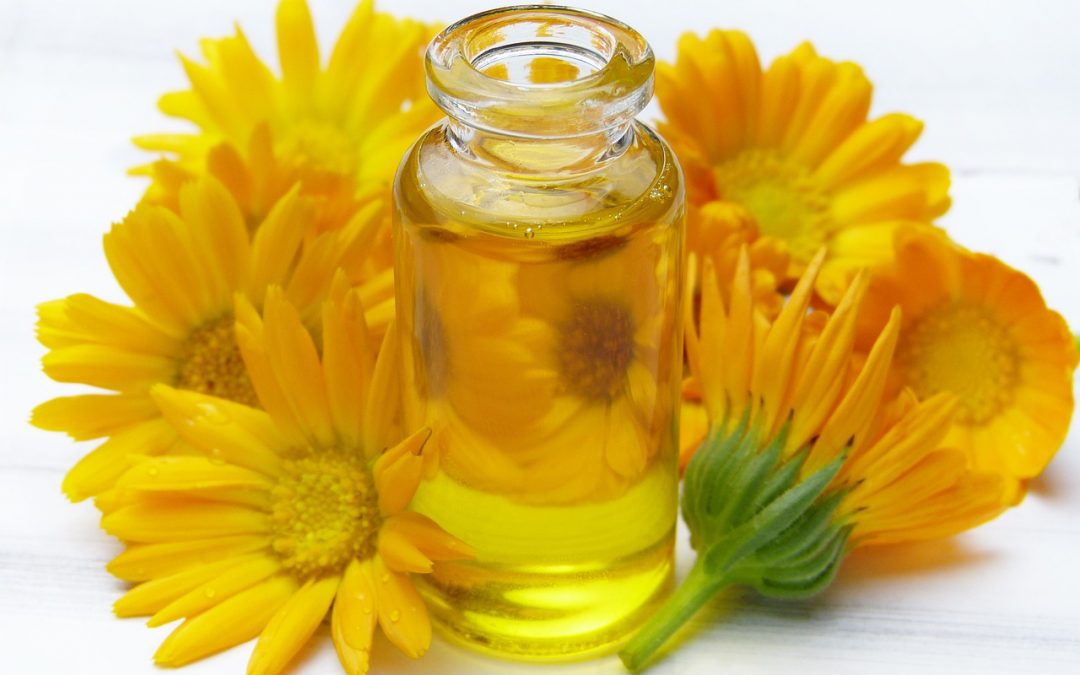Summertime – and the sunshine is intense. Great idea to use sunscreen to prevent sunburn and sun damage; most people would consider this a no-brainer. But did you know there are some essential oils that will react with the sun’s ultraviolet rays and create unpleasant and painful skin reactions? The phenomenon is called
photo-sensitivity – and it can be quite nasty.The aromachemistry of essential oils plays a role in determining which essential oils are safe or not safe to use on the skin during extended exposure times or higher intensity to ultraviolet rays. Essential oils containing a type of Lactone phytochemical called Furocoumarin is primarily responsible for the photosensitivity reaction to ultraviolet rays. Any essential oil containing furocoumarin can be problematic. Bergamot essential oil has the highest concentration of furocoumarin in the form of a phyto-chemical called Bergapten. Because of this, you won’t find it in any stay-on-the-skin products used in the summer months – or you shouldn’t!
What does a photosensitivity reaction look like? The reaction can be skin burns, skin blisters or serious skin discolouration. Depending upon the type and amount of essential oil applied and the length of exposure time to the sun, the skin damage can be mild to extremely severe. The risk of having a reaction can be any time up to 12-18 hours after applying the essential oil. It does not necessarily take alot of essential oil to create the reaction. Reactions have been documented at essential oil dilution rates less than 0.5%. Besides the skin reaction itself, the pain that accompanies the reaction can also be a great concern.
The essential oils most likely to create a photosensitivity reaction include most of the expressed citrus peel oils. Bergamot, Grapefruit, Lemon and Lime are best avoided. Mandarin and Tangerine are safer to use as their furocoumarin content is almost zero. Some researchers say it is safe to use expressed Orange essential oil, while others caution against its use. Additional essential oils that are problematic include Angelica Root and Tagetes. There are others, but they are rarely used in our daily skin care routines.
To limit this photosensitivity problem, some companies will offer Furocoumarin-free essential oils, or FCFs. These have been processed to remove the offending furocoumarin phyto-chemicals. For instance, you will often see Bergamot FCF (or Bergapten-Free Bergamot) available for sale during hot, sunny weather. The removal of the furocoumarins does alter the natural chemistry of the essential oil and, as some would argue, the oil’s full therapeutic benefits. But by removing the furocoumarin, it improves the essential oil’s safety for use on the skin in sunny weather.
Can you use essential oils containing furocoumarins during the summer? Certainly – but with safety in mind. Anything that will be washed off the skin immediately (such as soap or shampoo) is usually fine. Room diffusions are okay. Room sprays can work, as long as the droplets don’t land on one’s skin when spraying. Evening skin care should be fine, as long as the dilution rate is very low so the essential oil can be gone before the next day’s sun exposure.
Any questions or doubts about the essential oils or aromatherapy products you are using? Contact a qualified Registered Aromatherapist or Essential OIl Therapist for the safest answers.
Did you know ……
- HealthLink BC is a government funded tele-health service which provides non-emergency health information to the residents of BC., through combined telephone, internet, mobile app, and print resources.
- HealthLink BC has two dedicated phone numbers: 8-1-1 and 7-1-1 for hearing impaired callers.
- The website is a good source of health information and contact info for provincial services, agencies and supports http://www.HealthLinkBC.ca/
If you are dealing with a life-threatening situation, call 9-1-1 instead

